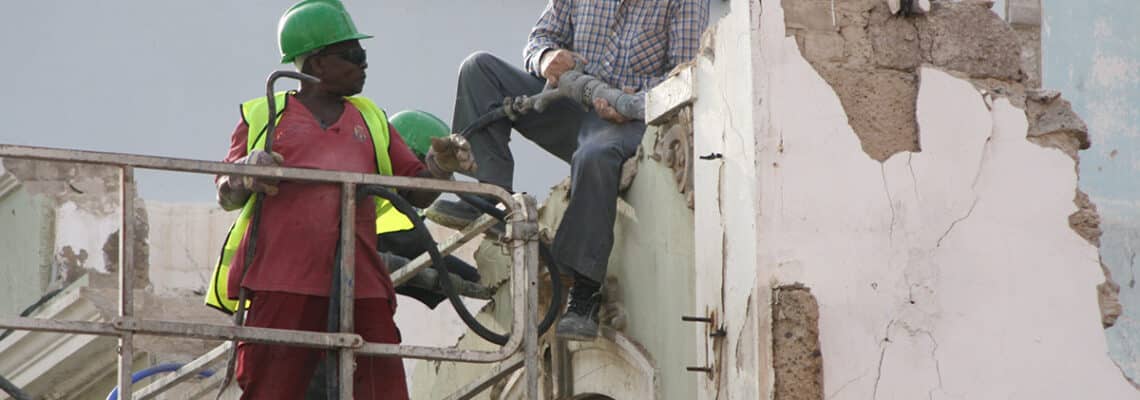Earlier on the New York Injury Lawyers Blog, we discussed New York’s Scaffold Act- officially known as Labor Law § 240 – and how the strict liability imposed on contractors and owners by that law imposes liability upon employers when laborers fall during the course of their work. A related issue is to whom, exactly, the Scaffold Act applies.
To recap: New York’s Scaffold Act mandates that contractors, owners, and managers of construction sites provide appropriate safety devices (often scaffolding, though the law allows for other devices) to their workers when those workers are performing construction or demolition work on a “building or structure.” The purpose of the law is to protect laborers from falls, or from being hit by objects or people that fall from above. The Act has done much to improve construction safety across New York State.
The law, though, does contain some exemptions – it specifies a certain class of “owners” who need not abide by its provisions. The law, on its face, without considering its other sections, would seem to apply to home construction just as it would to any other. After all, homes are “structures,” and oftentimes the laborers working on a home are going to dangle precariously from a great height to perform their work. But Labor Law § 240 also says this: it does not apply to “owners of one and two-family dwellings who contract for but do not direct or control the work.” As anyone who has had some work done on their home before and not directly supervised that work knows, this is an exemption that applies often to homeowners.
The recent case Sanchez v. Palmiero puts this principle into practice. The Appellate Division, Second Department, did not dismiss the case, for reasons that will be discussed shortly, but it did make one salient point: simply using a portion of one’s home for business purposes – say, by adding a home office – does not automatically mean that he or she no longer qualifies for the homeowner’s exemption to the Scaffold Act. In Sanchez, the defendant owned a building being worked on by the plaintiff. The plaintiff fell from the roof of that building, was injured, and subsequently sued. The building was a single family home, but was vacant at the time of the incident and had been vacant since being purchased by the defendant. So the issue at bar was whether this vacant structure was a home or a business, and, as such, did the owner need to abide by the provisions of the Scaffold Act?
The court did not fully answer that question, as this was a ruling on a motion for summary judgment. For this case to get to trial, the plaintiff had to first make a “prima facie” case – he had to show enough evidence that there was some kind of violation of the Scaffold Act, and that he was injured as a result. If the plaintiff can do that, and Mr. Sanchez did, the burden then shifts to the defendant to show that he did not have to abide by the Scaffold Act because he was a “homeowner” and thus exempted.
The defendant successfully overcame this burden here, but did not win his case outright. Why? Because the law then grants the plaintiff another chance to show his case should move forward by once again shifting the burden onto him to overcome the evidence put forth by the defendant. If he can do so – and Mr. Sanchez again did so here – he has raised what’s known as a “triable issue of fact,” and hence the plaintiff has overcome the defendant’s motion for summary judgment, and the case can proceed to trial. Here, the “triable issue” was whether the defendant intended for the structure to be primarily residential, or primarily for business.
No doubt, this area can be complicated – the law often is. If you think you were injured as a result of an employer not following the provisions of the Scaffold Act, talk to a scaffolding accident attorney who can sit down and hear your story.




